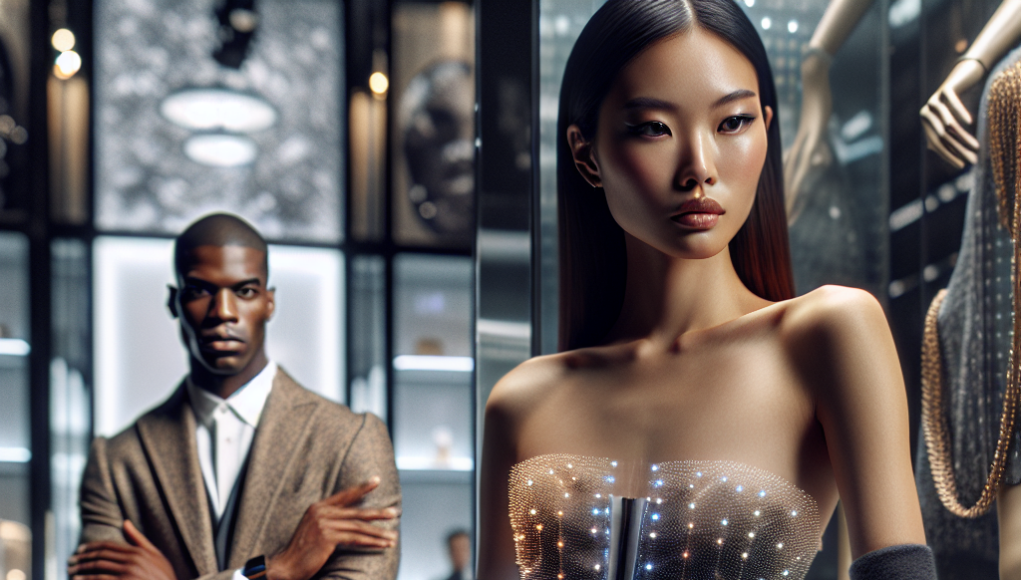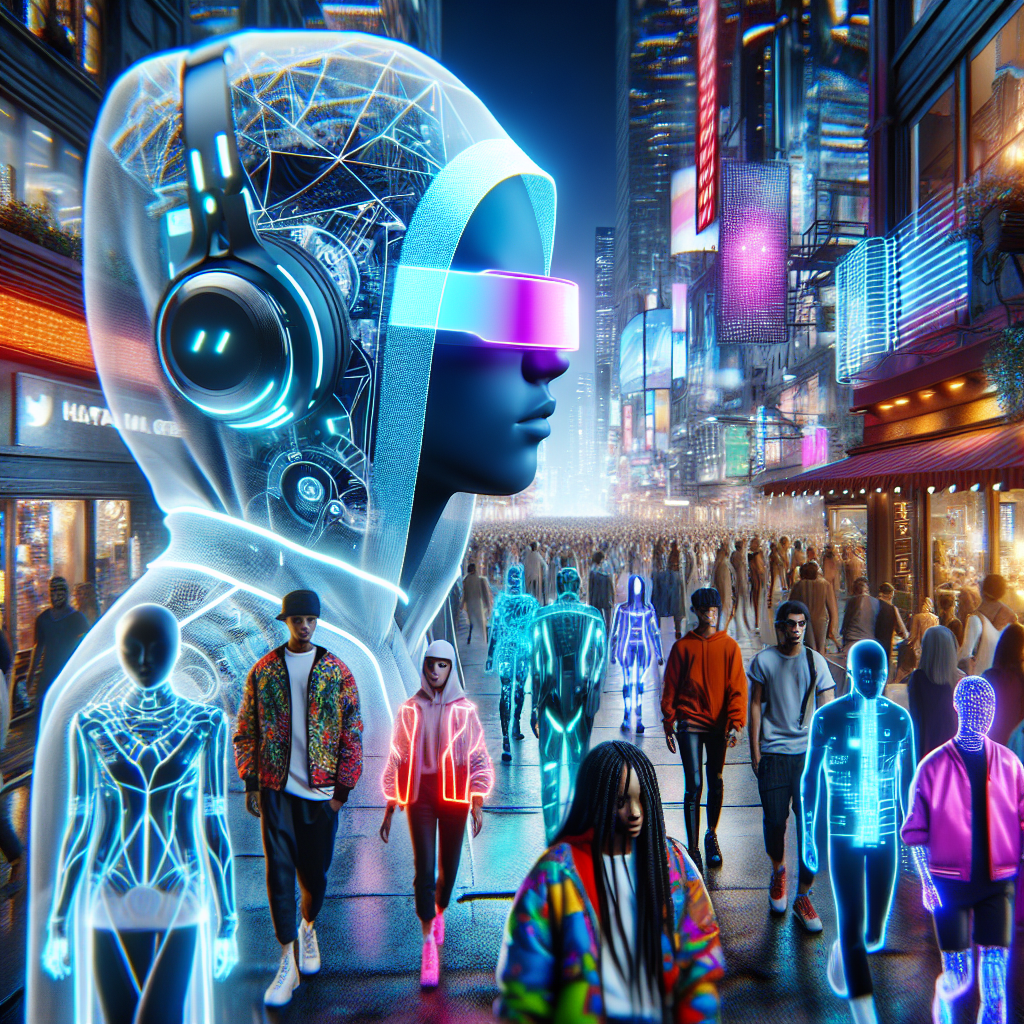Luxury Brands Embrace Tech for Modern Elegance
In the rapidly evolving landscape of fashion, luxury brands are increasingly integrating cutting-edge technology to redefine modern elegance. From high-tech innovations to smart fabrics and digital transformations, these brands are setting new standards in luxury and sophistication. As the boundaries between fashion and technology continue to blur, the concept of luxury is being reimagined for a contemporary audience. This article delves into the various ways in which luxury brands are embracing technology to maintain their allure and relevance in the modern world.
High-Tech Innovations in Luxury Fashion
High-tech innovations are reshaping the luxury fashion industry, offering unprecedented possibilities for creativity and functionality. One of the most significant advancements is the incorporation of virtual reality (VR) and augmented reality (AR) in the shopping experience. Luxury brands are using these technologies to create immersive experiences that allow customers to explore collections in a virtual space, enhancing engagement and personalizing the shopping journey.
Another groundbreaking innovation is the use of artificial intelligence (AI) in design and production processes. AI algorithms are being employed to analyze fashion trends, predict consumer preferences, and even assist in the design of new collections. This not only streamlines operations but also ensures that luxury brands stay ahead of the curve in terms of style and relevance.
3D printing technology is also making waves in the luxury fashion sector. This technology allows for the creation of intricate designs and custom pieces that were previously impossible to achieve with traditional methods. Brands are leveraging 3D printing to offer unique, made-to-order items that cater to the desires of discerning clientele, further enhancing the exclusivity associated with luxury.
Moreover, smart mirrors and interactive displays are becoming commonplace in luxury boutiques. These devices provide customers with detailed product information, styling suggestions, and even virtual try-on options, creating a seamless and engaging shopping experience. The integration of such technology not only elevates customer service but also reinforces the brand’s commitment to innovation.
Sustainability is another area where high-tech innovations are making a significant impact. Luxury brands are adopting eco-friendly technologies, such as blockchain for supply chain transparency and advanced recycling methods, to reduce their environmental footprint. This commitment to sustainability not only aligns with modern consumer values but also adds an ethical dimension to the concept of luxury.
Finally, wearable technology is being embraced by luxury brands to combine elegance with functionality. From smartwatches to connected jewelry, these items offer tech-savvy consumers the best of both worlds. By integrating technology into their products, luxury brands are able to cater to the growing demand for items that are both stylish and functional, thus redefining modern elegance.
Smart Fabrics Redefining Modern Elegance
Smart fabrics are at the forefront of redefining modern elegance in the luxury fashion industry. These innovative materials are embedded with technology that allows them to respond to environmental changes or user input, offering a dynamic and interactive experience. Luxury brands are leveraging smart fabrics to create garments that not only look exquisite but also provide additional functionality.
One of the most exciting developments in smart fabrics is their ability to regulate temperature. Luxury designers are incorporating phase-change materials into their collections, which can absorb, store, and release heat to maintain a comfortable body temperature. This innovation is particularly appealing for high-end outerwear, offering a perfect blend of style and comfort.
Smart fabrics also have the potential to enhance personal well-being. Some luxury brands are experimenting with textiles that can monitor biometric data, such as heart rate and stress levels, providing wearers with valuable health insights. This fusion of fashion and technology is paving the way for garments that are not only aesthetically pleasing but also contribute to the wearer’s overall wellness.
Moreover, smart fabrics are being used to create adaptive clothing that can change color or pattern based on user preference or environmental factors. This level of personalization is highly attractive in the luxury market, where exclusivity and individuality are paramount. By offering garments that can transform at the touch of a button, luxury brands are pushing the boundaries of what is possible in fashion.
The integration of smart fabrics is also enhancing the sustainability of luxury fashion. Some textiles are designed with self-cleaning properties, reducing the need for frequent washing and thus conserving water and energy. Others are made from biodegradable materials, addressing the growing consumer demand for environmentally responsible fashion choices.
Luxury brands are also exploring the use of conductive fabrics, which can power integrated electronic devices or provide connectivity for wearable technology. This opens up new possibilities for interactive and multifunctional garments that cater to the tech-savvy consumer. By embracing smart fabrics, luxury fashion is not only keeping pace with technological advancements but also setting new standards for modern elegance.
Digital Transformation in Prestigious Brands
Digital transformation is revolutionizing the way prestigious luxury brands operate, interact with customers, and present their products. The shift towards digitalization is driven by the need to meet the expectations of a digitally-savvy consumer base that values convenience, speed, and personalized experiences.
One of the most significant aspects of this transformation is the adoption of e-commerce platforms. Luxury brands are investing in sophisticated online stores that offer an immersive and seamless shopping experience. These platforms often include features such as virtual try-ons, personalized recommendations, and exclusive online collections, allowing brands to reach a global audience without compromising on the luxury experience.
Social media has become an indispensable tool for luxury brands to engage with their audience and build a strong online presence. By leveraging platforms like Instagram, Facebook, and WeChat, brands can showcase their collections, tell their stories, and connect with consumers on a personal level. Influencer partnerships and digital campaigns further amplify their reach, making luxury fashion more accessible and relatable to a broader audience.
Digital transformation is also evident in the way luxury brands are utilizing data analytics. By analyzing consumer data, brands can gain insights into shopping behaviors, preferences, and trends, allowing them to tailor their offerings and marketing strategies accordingly. This data-driven approach ensures that luxury brands remain relevant and competitive in a fast-paced digital world.
Blockchain technology is being embraced by luxury brands to enhance transparency and authenticity. By implementing blockchain, brands can provide customers with verifiable information about the origin and journey of their products, ensuring authenticity and combating counterfeiting. This technology not only builds trust with consumers but also reinforces the brand’s commitment to quality and integrity.
Furthermore, digital transformation is streamlining supply chain operations for luxury brands. Automation and digital tools are being used to optimize inventory management, production schedules, and distribution processes, resulting in increased efficiency and reduced costs. This allows brands to focus on what they do best: creating exquisite products that embody luxury and elegance.
Artificial intelligence is playing a crucial role in the digital transformation of luxury brands. From chatbots that provide customer support to AI-driven design processes, technology is being harnessed to enhance the customer experience and drive innovation. By embracing digital transformation, luxury brands are not only staying relevant in a digital-first world but also setting new benchmarks for modern elegance.
The intersection of technology and luxury fashion is creating a new paradigm of modern elegance. By embracing high-tech innovations, smart fabrics, and digital transformations, luxury brands are not only enhancing their products and services but also redefining what it means to be a luxury brand in the 21st century. As these advancements continue to evolve, the possibilities for creativity, personalization, and sustainability in luxury fashion are boundless. The fusion of technology and luxury is not just a trend—it’s the future of fashion.








